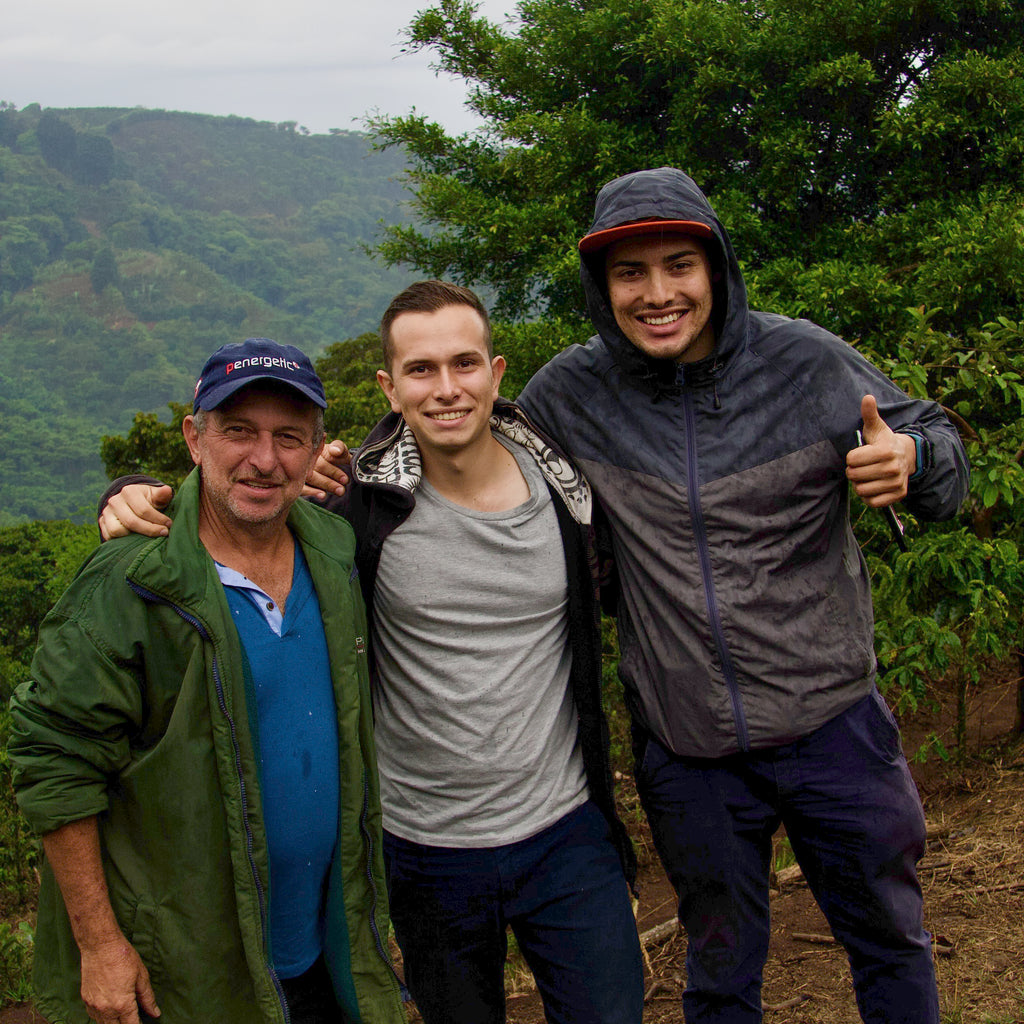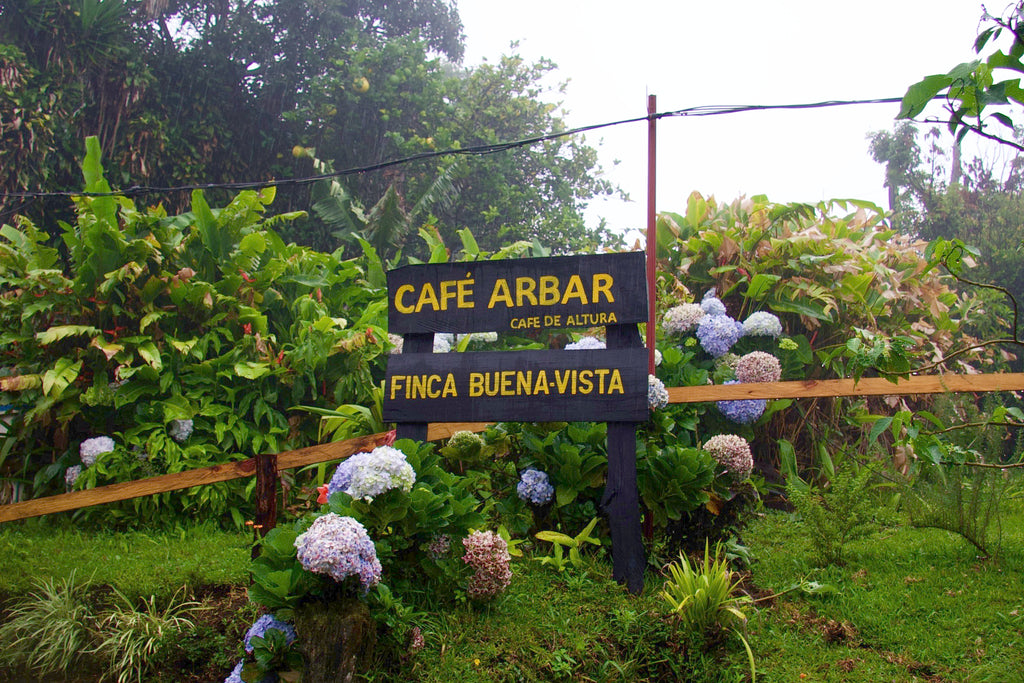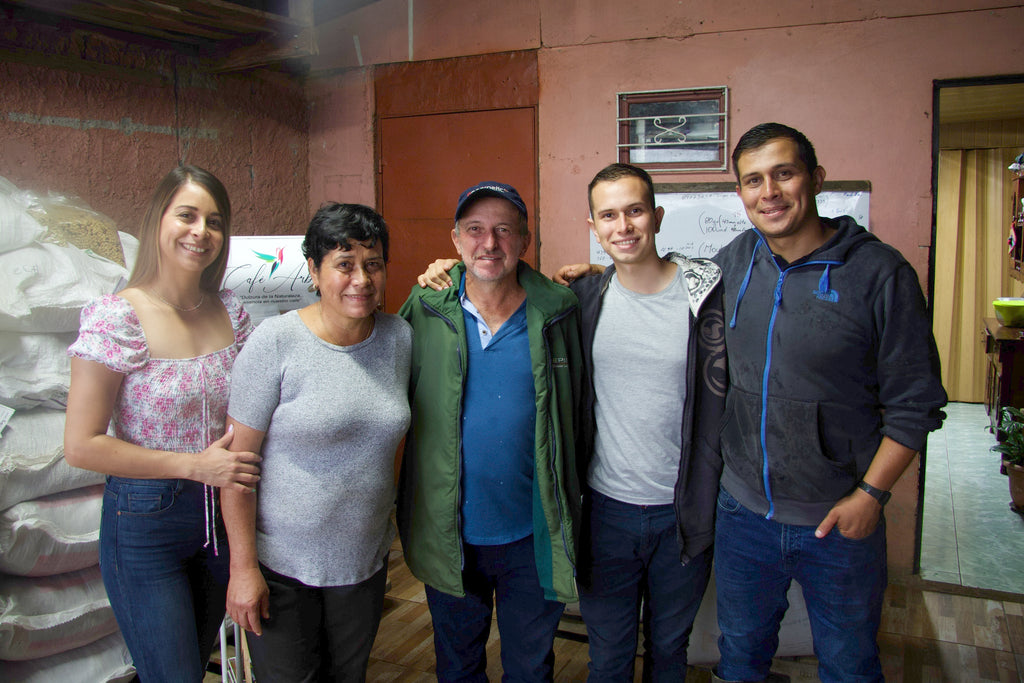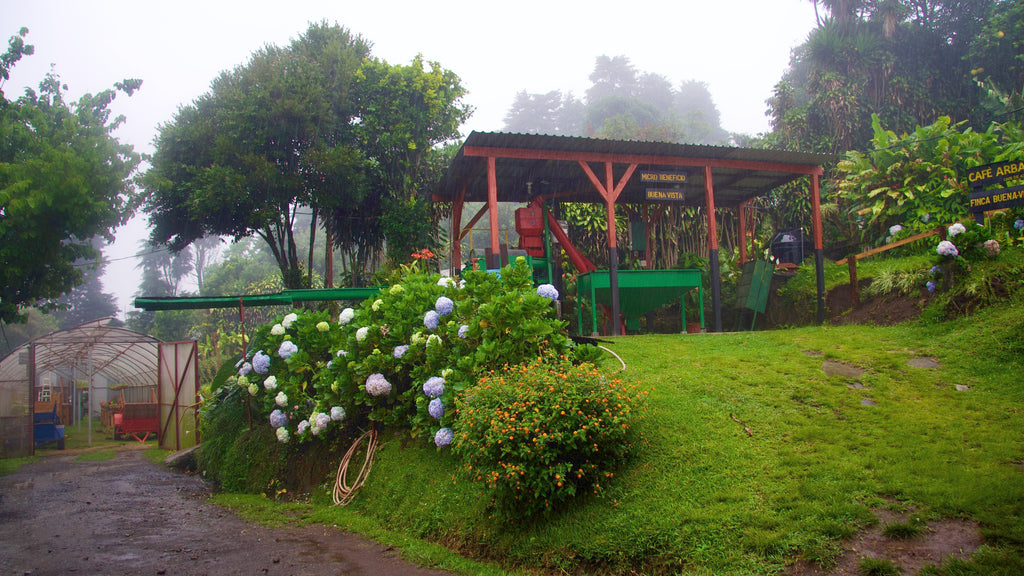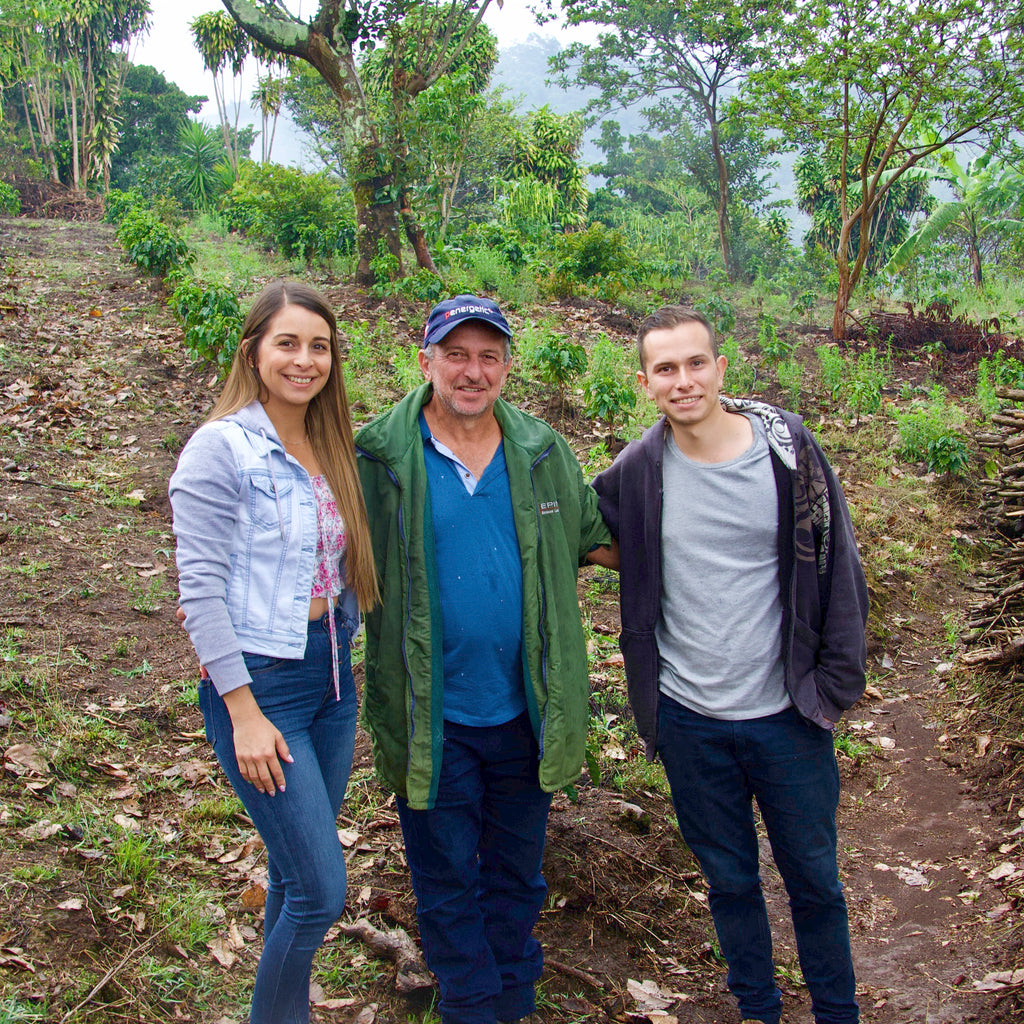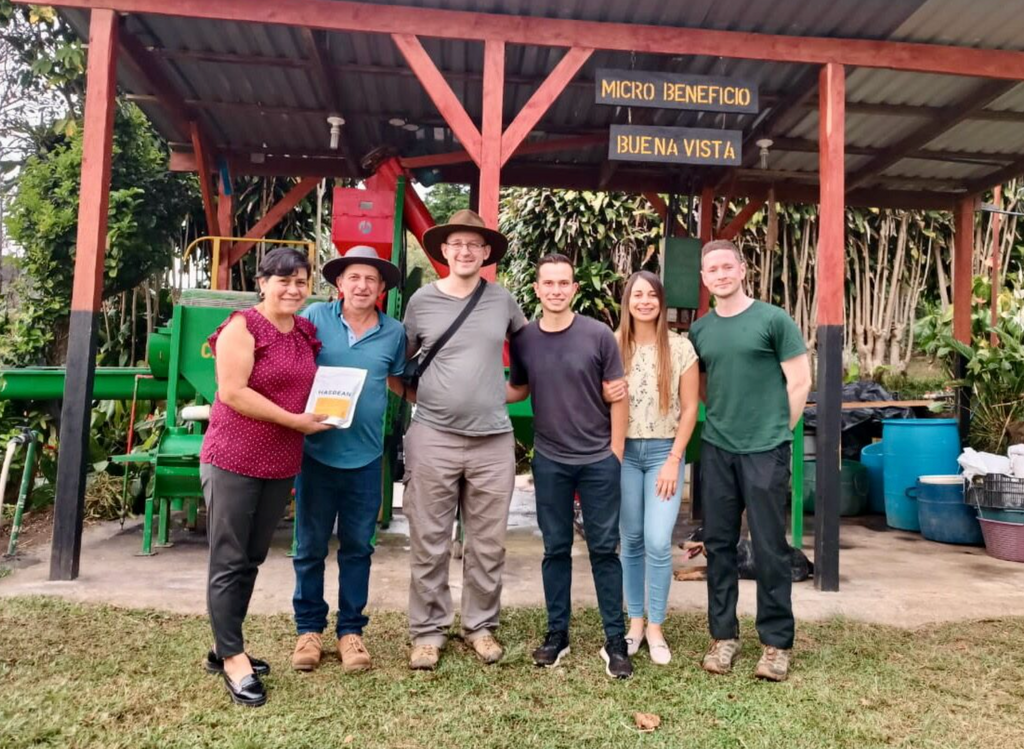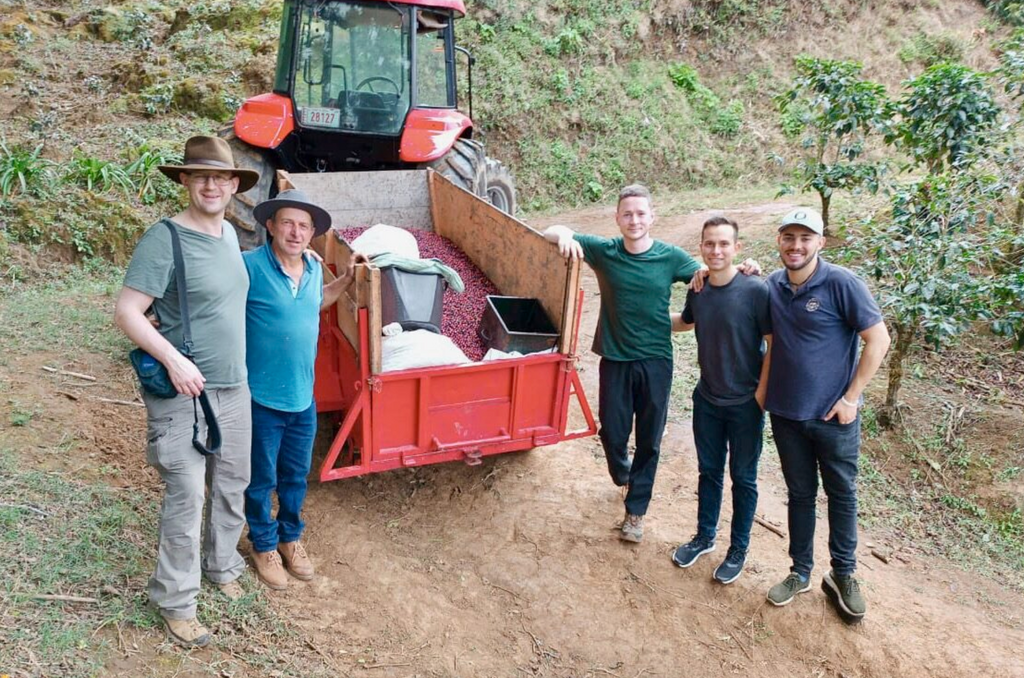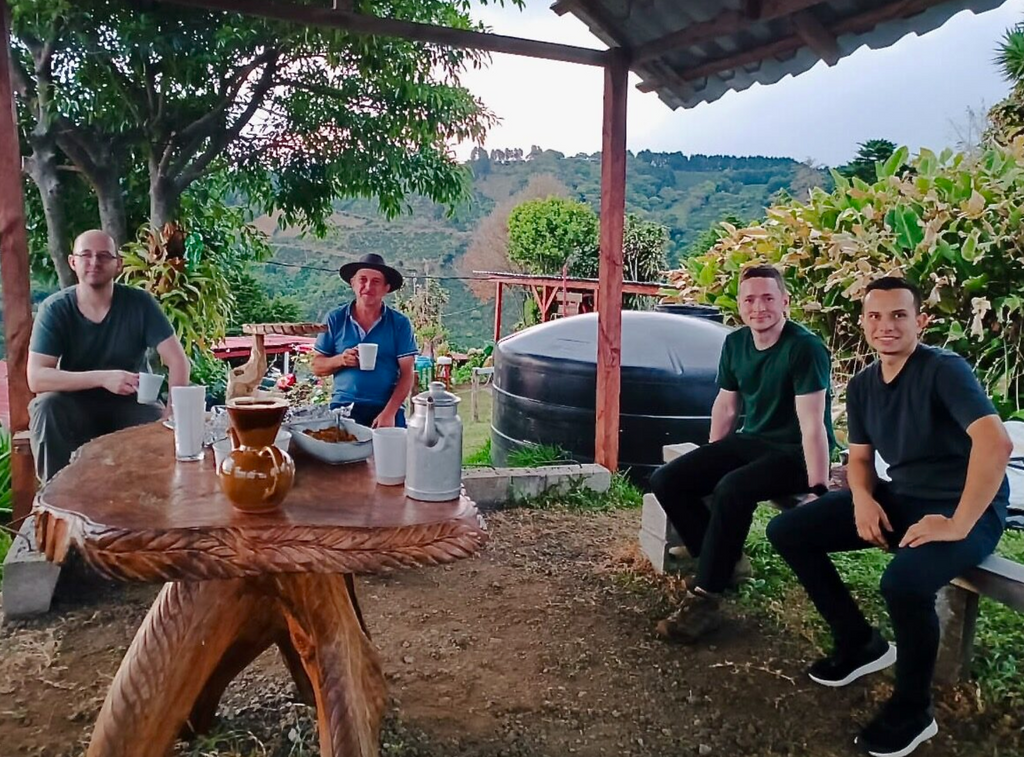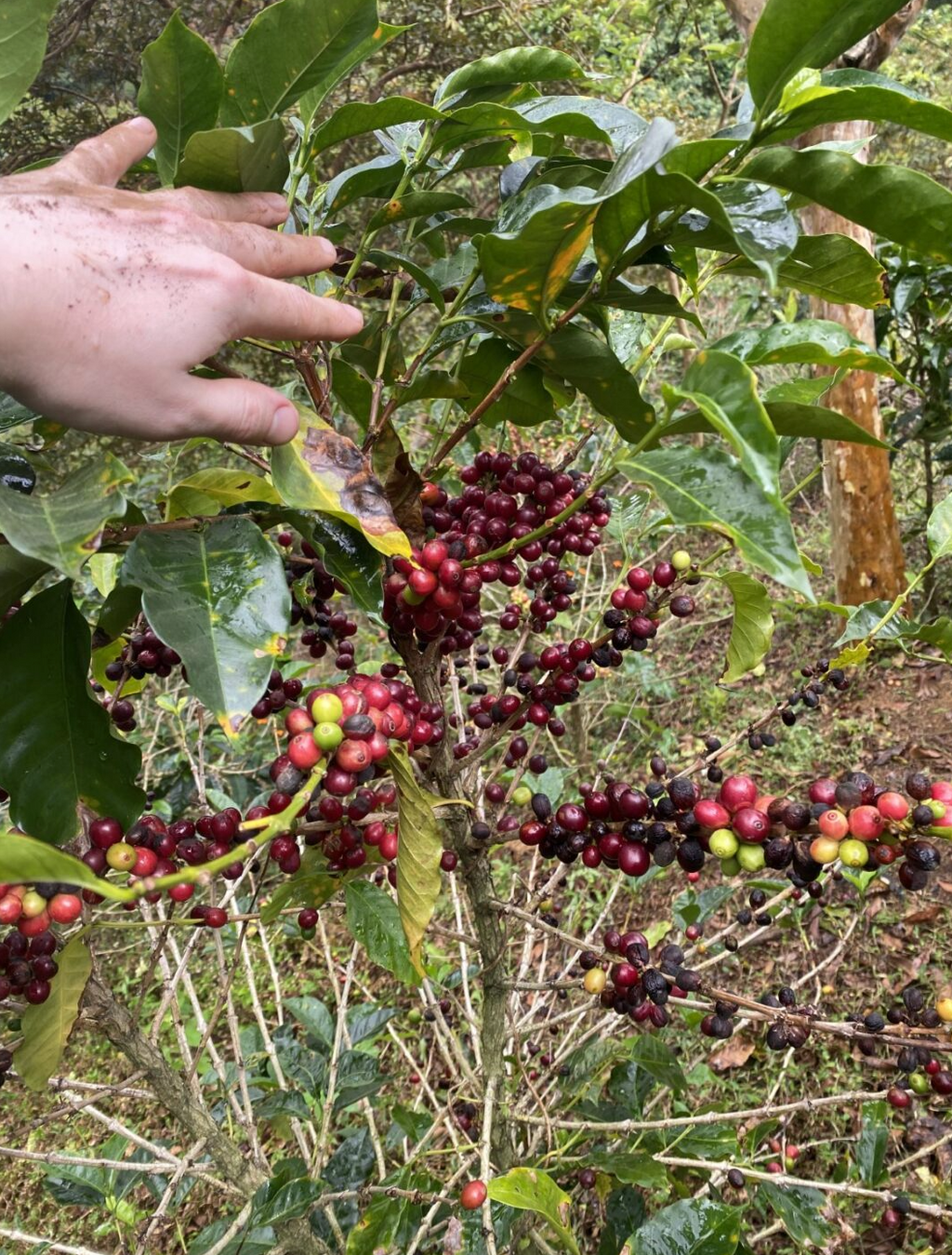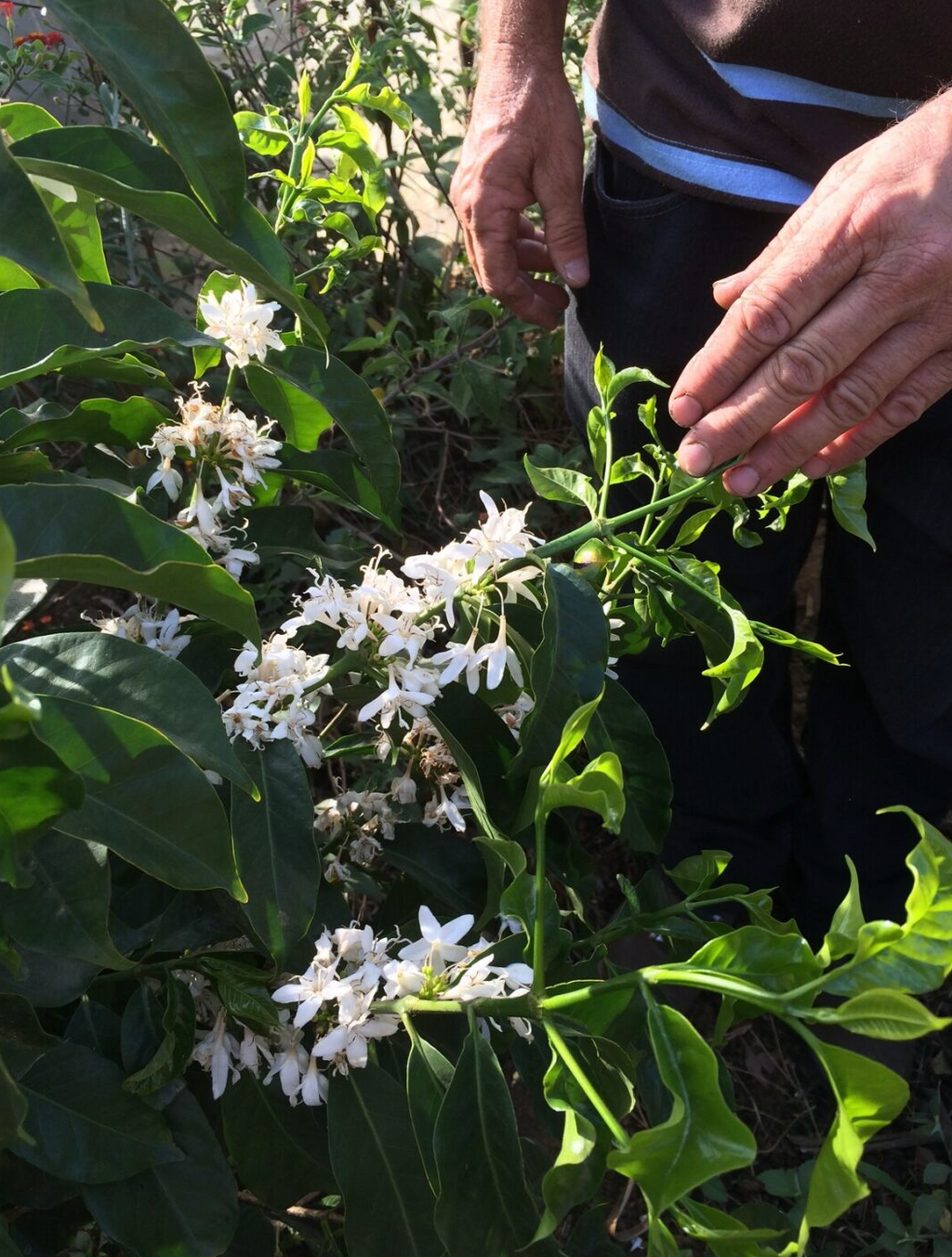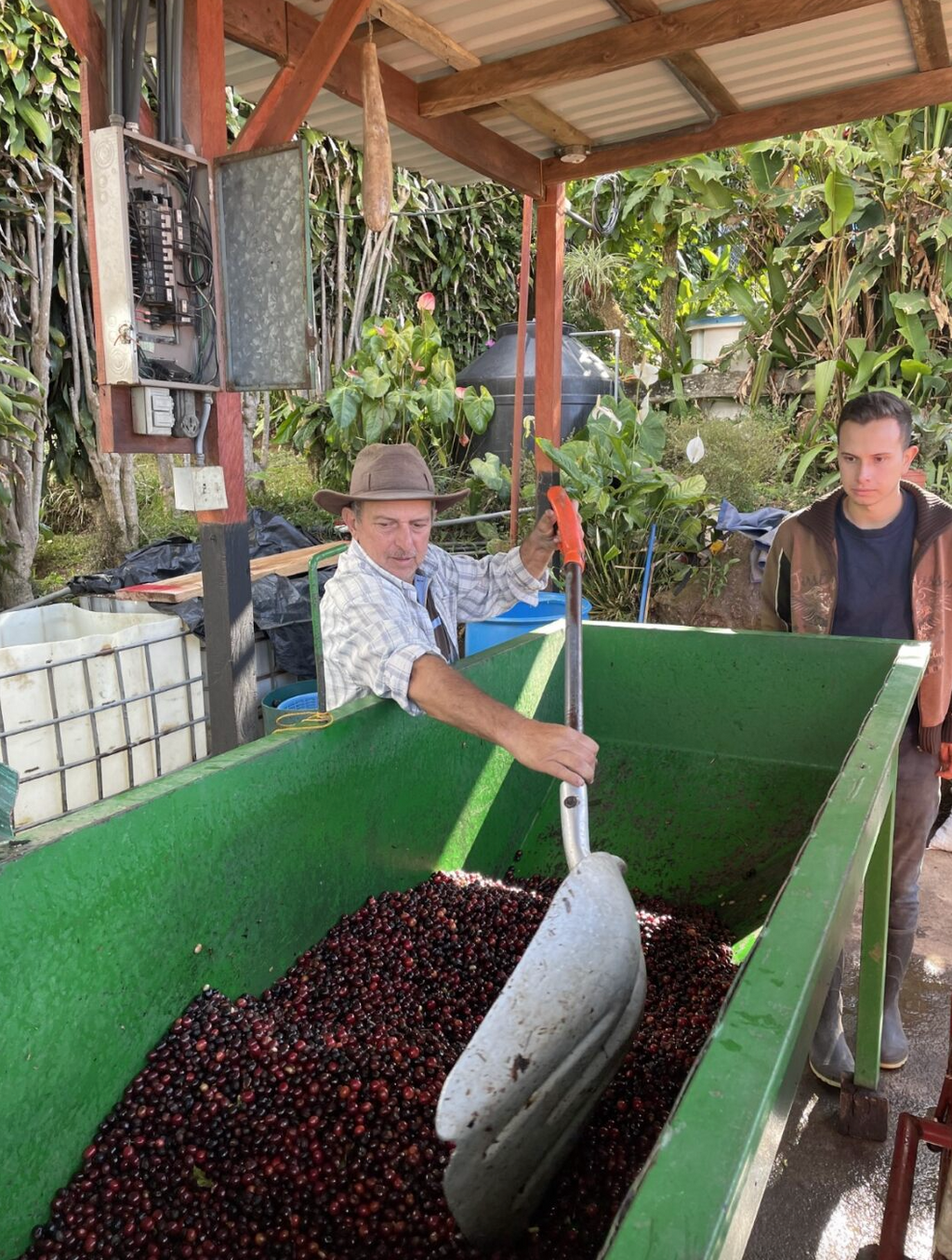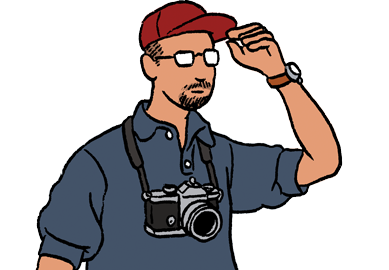Introducing the Arrieta Barboza Family
The Arbar Micromill is a shining example of what happens when passion, family, and sustainability come together. Owned and operated by the Arrieta Barboza family, the name ARBAR is a blend of Carlos ARrieta and Maria BARboza – a sweet nod to the couple at the heart of this operation.
The mill is located in Costa Rica's West Valley, near Lourdes de Naranjo, at an elevation of 1,600 metres above sea level. Everything is laid out with care: drying beds, depulpers, and nurseries surround the family home, which sits in the middle of their El Manantial farm.
The Five Farms of Arbar: A Patchwork of Passion and Precision
The Arbar Micromill is supported by five distinct farms, each with its own story, microclimate, and varietal focus. Together, they form a diverse and resilient foundation for the Arrieta Barboza family’s coffee production.
1. El Manantial – The Heart of the Operation
Located at 1,600 meters above sea level, El Manantial is the largest of the five farms and the site of the family home and micromill. At around 3 hectares, it produces approximately 8,500 kg of fresh coffee cherries annually - yielding just over 1,000 kg of green coffee once processed. The mill, drying beds, nursery, and depulper are all arranged around the house, making this farm the logistical and emotional centre of Arbar.
2. El Oasis – Small but Mighty
Slightly smaller than El Manantial, El Oasis is a compact but productive farm that yields around 6,000 kg of cherries each year. Its name reflects the peaceful, fertile environment that supports healthy coffee plants and consistent harvests.
3. La Casa – A Garden of Exotic Varieties
La Casa is a varietal showcase, planted primarily with Geisha and Kenya - two high-quality, high-maintenance varieties that thrive in the farm’s unique conditions. This farm reflects the family’s commitment to experimentation and quality, producing some of the most distinctive lots in their portfolio.
4. La Isla – A Family Collaboration
La Isla is owned by Maria’s niece, but is managed by Carlos and Maria under a long-term agreement. The farm sits at 1,400 meters above sea level and spans 1.4 hectares. It’s planted with a diverse mix of Villa Sarchi, Kenya, Geisha, and Ethiopia varieties. This collaborative arrangement reflects the family’s deep-rooted connections and their willingness to nurture land that might otherwise go underutilised.
5. Don Pedro – A Farm with History
Don Pedro is a leased farm with a rich backstory. It’s owned by Pedro Aguilera, son of the elder Pedro Aguilera, who once owned much of the land in this part of the valley. Over time, the land was divided among his children - many of whom chose not to stay in coffee. When Pedro mentioned to Esteban Arrieta that he was struggling to manage four farms and had no successor, Esteban proposed a solution: the Arrieta family would take over the farm under an 8-year lease. Since then, they’ve focused on renovating the land, replacing old plants, pruning, and improving soil health. It’s a project rooted in respect for legacy and a vision for the future.
A Commitment to Biodiversity and Sustainability
The Arrietas operate their farms using mostly organic practices, though they are not certified. Their approach is rooted in agroecology: fruit trees are planted among the coffee to provide shade, enrich the soil, and feed the family. Sheep and other animals roam the land, contributing to a self-sufficient ecosystem. They have goats, chickens, and fish on the farm, trying to be as self-reliant as they can be.
They grow a wide range of varieties including Caturra, Catuai, Villa Sarchi, Kenia, Ethiopia, and Geisha, reflecting both tradition and innovation in their farming approach.
A Strong Community Presence
Carlos and Maria are active members of the Lourdes de Naranjo community, maintaining close ties with neighbours and fellow producers. Their network includes Cup of Excellence-winning mills like Herbazu, Vista Al Valle, and Sumava. This spirit of collaboration and mutual support has helped elevate the entire region’s reputation for specialty coffee.
The family also supports local employment. A young full-time worker, who faced challenges completing school, now lives on the farm and has become a valued team member. During harvest, a family of six from Nicaragua (plus two young children) joins the team. The rest of the work is shared among the Arrietas, depending on their other commitments.
Maria and Carlos have also expanded into tourism, running coffee tours of the farms (a great shout if any of you are looking to holiday in Costa Rica!) and they are self sufficient to a large degree. The family are also a big part of the local community. Last time we visited, Paul (our Head Roaster in New Zealand) and Roland even went along to a rodeo fair (a big deal in the rural agricultural neighbourhood) although there are no photos of Roland falling off things sadly!
That same trip, while stood outside the house sharing a coffee, they had a visit from the local Firemen, having turned up to pick up some coffee for themselves. Alongside selling green coffee, Maria roasts too and has a small roaster in the back of the house. She loves chatting with Roland about roasting and how they both enjoy the process and what it means to them. As Maria was roasting coffee, the Firemen stopped by to buy and ended up sharing a mug and had a chat before heading back off to work. A lovely snapshot of rural life and community, it’s such a them kind of thing. Everyone at Arbar really are part of their community and just the loveliest human beings – it reminds you of why you put the work into maintaining these connections.
From Anonymous Lot to Global Recognition
Carlos has owned the farm for nearly 20 years, but it wasn’t until 2014 that he began processing his own coffee. Before that, he sent his cherries to a cooperative and had never met a buyer directly.
That changed in 2013, when Stephen Leighton of Hasbean cupped a sample of Carlos’s coffee at the offices of Exclusive Coffees, led by Francisco Mena. The coffee didn’t even have a name, just “Carlos Arrieta” on the label, but it stood out immediately.
When Carlos arrived, the negotiation that followed became legendary:
“How much do you want?”
“How much do you like it?”
“A lot.”
“I’d like a lot then, please.”
“OK…”
Thankfully, someone from the exporter’s team stepped in before Stephen gave away his house and car. A fair price was agreed upon, one that paid Carlos more than he’d ever received before.
In 2018, Hasbean joined Ozone Coffee Roasters, and we’ve proudly continued the relationship ever since, buying nearly every bean Arbar produces.
This Is Your Home Now
Ozone Green Buyer Roland first visited here in 2015, the year he participated on the Costa Rica Cup Of Excellence jury, and it is one of the most imprinted memories in his life. On that first trip he didn’t yet speak any Spanish, and he was chaperoned to the farm by the lovely Wayner from Exclusive Coffees who, at that point, didn’t speak much English. Carlos and Maria both only speak Spanish, so communication was a challenge. They bridged the gap very early on as, before any introductions upon arrival, Carlos gave Roland a huge hug and told him “Welcome. You’re one of us, this is your home now.” He was shown around the farms, sat at the head of the table when everyone had dinner together, and learnt how to say a few things in Spanish – the most important, of course, being the iconic “Pura Vida!”. This literally translates as “pure life” but it’s the ultimate catch-all phrase. How are you? Pura vida (everything’s good!). You had a bad day? Pura vida (that’s life!). It’s a wonderful upbeat thing that you can use for a million different things, very Costa Rica.
When we first bought coffee from Arbar we were buying every bean that they produced, these days they are more and more efficient and produce a bigger crop so we don’t buy all of it but still a big percentage. That reality is incredibly satisfying for us to see, and spending time with all of them is still really precious and personal. It’s an important thing, it reminds us just how far relationships can progress when you give people a fair price for their coffee. That’s all we’re doing, paying them the price they deserve and being there every year. It’s wonderful to see them keep progressing.
A Family Legacy in Every Cup
Maria leads much of the processing and also roasts for the local market, a skill she learned as a child roasting beans over a fire with her father. Esteban works for our exporting partner Exclusive Coffees, bringing valuable insight back to the family business. Nacho helps out on the farm and has developed a keen interest in cupping and quality control. Yessica and Karen have moved on to careers outside coffee, but the family bond remains strong.
Rolands favourite thing about the developments at Arbar over the year, and the best way to judge whether you’re doing the things you want to do in a relationship with a farm, is Esteban. When Roland first met him he was working in the cattle industry, it’s not unusual to see kids not taking over their parents’ coffee farms as there’s no money in it. Then, a few years back, he started working at the nearby Sumava mill and did an amazing job, pretty quickly he moved to start working at an exporters, now he works for our exporters Exclusive. He’s just bought himself a bit of farmland of his own, right next door to Oasis. There’s nothing quite as good as seeing the outcome that Esteban made the decision to work in coffee because we were now showing that the job can pay off.
The Arbar Micromill is more than just a coffee operation - it’s a living legacy of hard work, community, and love for the land. Every cup tells a story of resilience, care, and the quiet excellence of a family doing things the right way.

